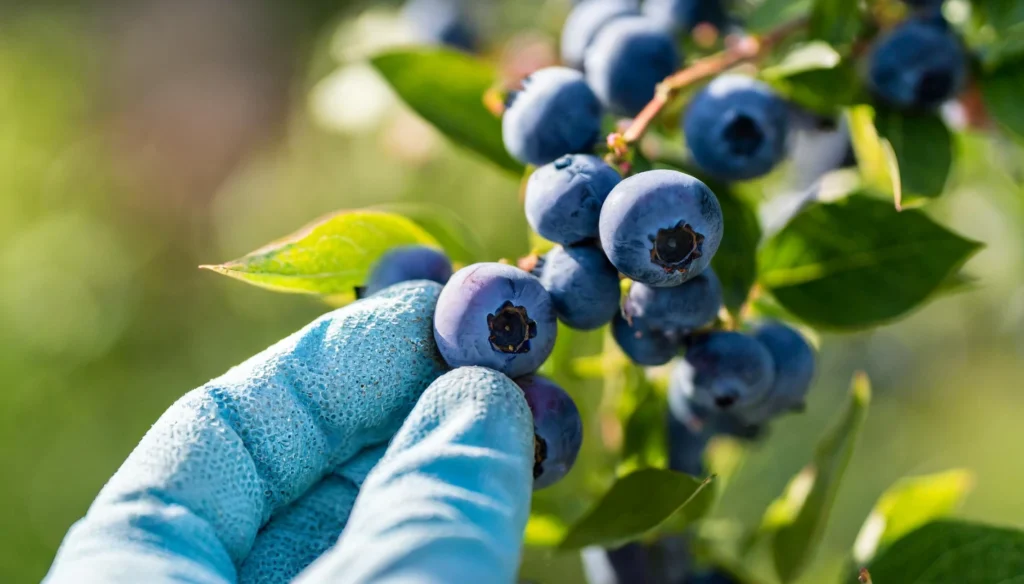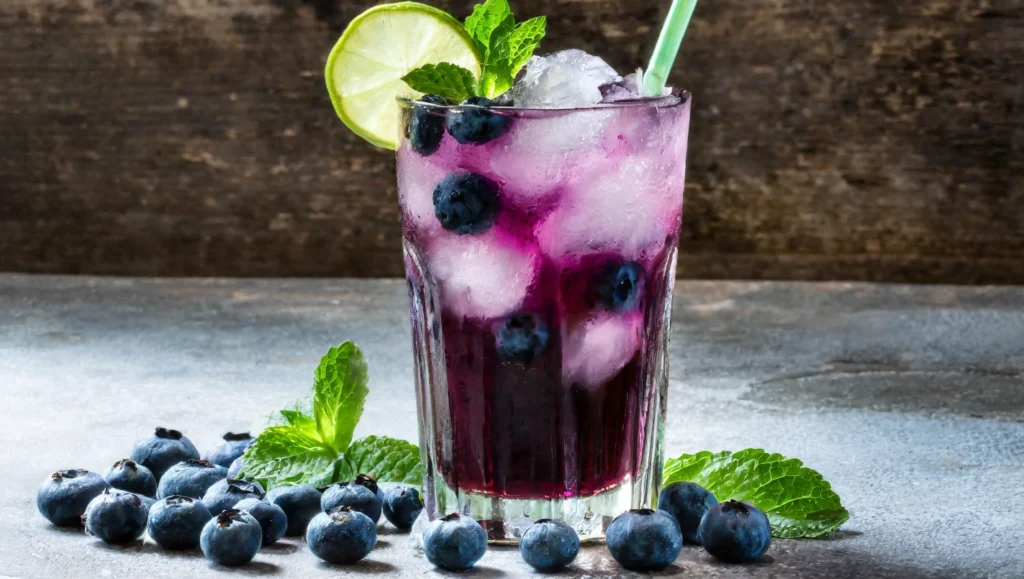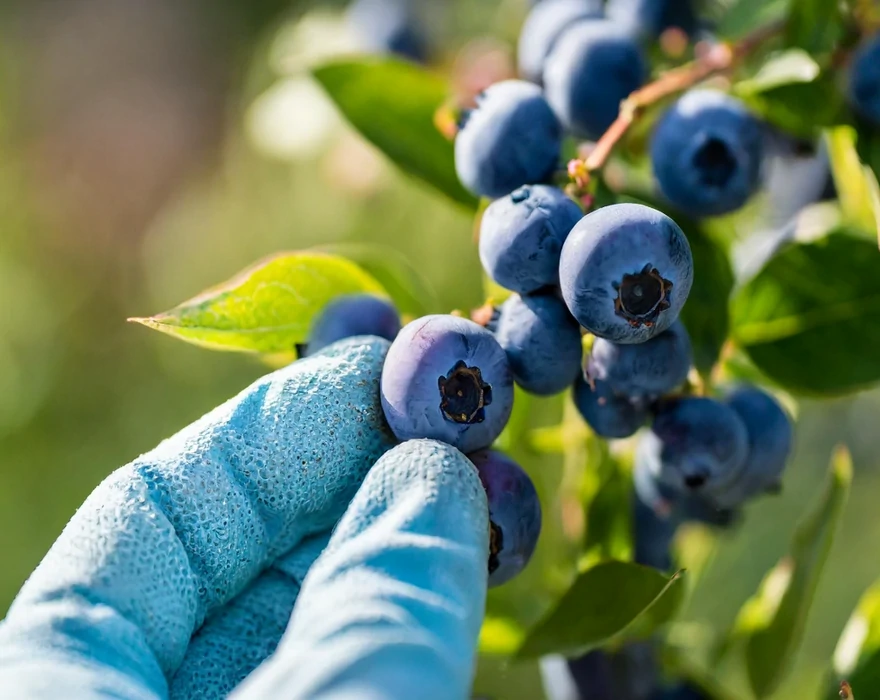
Introduction to Sour Blueberries
Blueberries, cherished for their nutritional wealth and delightful sweetness, occasionally surprise our palates with a sour note. This tanginess, often unexpected, leads many to ponder, What to do with sour blueberries? Originating from a plant species native to North America, blueberries have been savored for centuries, both for their flavor and health benefits. The variance in taste, from sweet to sour, largely depends on the variety and maturity of the berry at harvest.
Interestingly, the sourness in blueberries isn’t a sign of imperfection but a natural characteristic of certain varieties. Factors such as soil pH, climate, and the berry’s ripeness at harvest can influence this tanginess. Despite their puckering taste, sour blueberries are a powerhouse of nutrients, offering a rich source of vitamins, minerals, and antioxidants. These compounds contribute to a multitude of health benefits, from improving heart health to combating inflammation.
Health Benefits of Blueberries (Sour and Sweet)
Both sour and sweet blueberries are celebrated for their nutritional profile, laden with health-promoting antioxidants such as anthocyanins, which give blueberries their characteristic blue hue. These antioxidants are pivotal in neutralizing harmful free radicals, reducing oxidative stress, and potentially lowering the risk of chronic diseases.
The consumption of blueberries has been linked to:
- Enhanced brain health, including improved cognitive function and memory retention.
- A decrease in the risk of heart disease, attributed to the fruit’s ability to improve cholesterol levels and lower blood pressure.
These health benefits make sour blueberries not just tolerable but desirable. Incorporating them into your diet, regardless of their tang, ensures you reap their vast nutritional benefits. For further insight into their health advantages, consider exploring resources like Healthline’s “Health benefits of blueberries”, which delves into the myriad ways these small fruits support overall well-being.
Culinary Uses for Sour Blueberries
What to do with sour blueberries? in the Kitchen
Baking with Sour Blueberries

Sour blueberries can introduce a delightful tang to baked goods, offering a balance to the sweetness prevalent in most recipes. When baking with sour blueberries, consider adjusting the amount of sugar or incorporating sweeter fruits to harmonize the flavors. Here are some ideas:
- Blueberry Muffins: Enhance the recipe with a touch of extra sugar or honey to counterbalance the blueberries’ sourness.
- Blueberry Lemon Pound Cake: The tartness of both the lemon and blueberries creates a refreshing, balanced flavor.
Making Preserves and Jams
The natural acidity of sour blueberries makes them perfect for preserves and jams, as it aids in the setting process and enhances the shelf-life. To make a balanced blueberry jam:
- Start with equal parts sour blueberries and sugar.
- Add a splash of lemon juice to help set the jam and highlight the blueberries’ natural flavors.
Creative Solutions
Blueberry Drinks: From Smoothies to Cocktails
Sour blueberries can be transformed into delightful beverages, ranging from morning smoothies to evening cocktails. Their tanginess adds a refreshing twist to drinks:
- Blueberry Smoothie: Combine sour blueberries, a banana, Greek yogurt, and a drizzle of honey for a balanced, nutritious smoothie.
- Blueberry Mojito: Muddle sour blueberries with mint, lime, sugar, and rum for a tangy twist on the classic cocktail.

Desserts and Sweets
Incorporating sour blueberries into desserts allows for creative flavor profiles, where their acidity can be balanced with sweeter ingredients or used to complement other flavors:
- Blueberry Pie: Use a combination of sour and sweet blueberries for a pie filling that has depth and complexity.
- Blueberry Sorbet: Puree sour blueberries with simple syrup for a refreshing, tangy dessert.
FAQs About Sour Blueberries
- Can you sweeten sour blueberries? Yes, by tossing them with a little sugar or honey before using them in recipes.
- Why are my homegrown blueberries sour? Sourness in homegrown blueberries is often due to the variety planted or harvesting them too early.
- Are sour blueberries safe to eat? Absolutely, their sourness doesn’t affect their safety or nutritional value.
- How to pick blueberries to avoid sourness? Look for ripe, plump berries with a uniform blue hue; the larger and darker the berry, typically, the sweeter it will be.
Agricultural and Gardening Tips
Growing your blueberries can be a rewarding venture, especially when armed with the knowledge to cultivate sweeter fruits. The key factors influencing the sweetness include:
- Soil Conditions: Blueberries thrive in acidic soil (pH 4.5 to 5.5). Testing and adjusting your soil’s pH can lead to sweeter berries.
- Care and Maintenance: Proper watering, mulching, and fertilization are crucial for healthy, sweet blueberries.
For gardeners seeking to delve deeper into growing sweet blueberries, resources like Gardening Know How provide a wealth of information on care, varieties, and troubleshooting tips for your blueberry bushes.
Harvesting and Storage Tips
To ensure the best flavor from your blueberries, consider the following:
- Harvesting: Wait until berries are fully ripe and easily pull away from the bush; they continue to sweeten on the bush.
- Storage: Keep blueberries in a cool, dry place and consume within a week for optimal flavor.
In crafting dishes and drinks with sour blueberries, we turn what could be seen as a culinary challenge into a celebration of flavor. From baking to beverages, the versatility of these berries shines through, proving that a little tang can lead to tantalizing creations. As we’ve explored the myriad ways to enjoy sour blueberries, remember that each tart berry holds the potential for delicious innovation.
Conclusion
Concluding our culinary journey with sour blueberries, we’ve seen their potential to transform dishes and drinks with their unique tangy flavor. From baking delights to refreshing cocktails, these vibrant berries encourage creativity in the kitchen. For those eager to explore further, don’t miss out on our delicious Blueberry Glaze recipe for an extra touch of blueberry magic in your desserts. Remember, sour blueberries aren’t a challenge; they’re an opportunity to discover new flavors and create memorable culinary experiences. Embrace the tartness and let your culinary creativity flourish!

